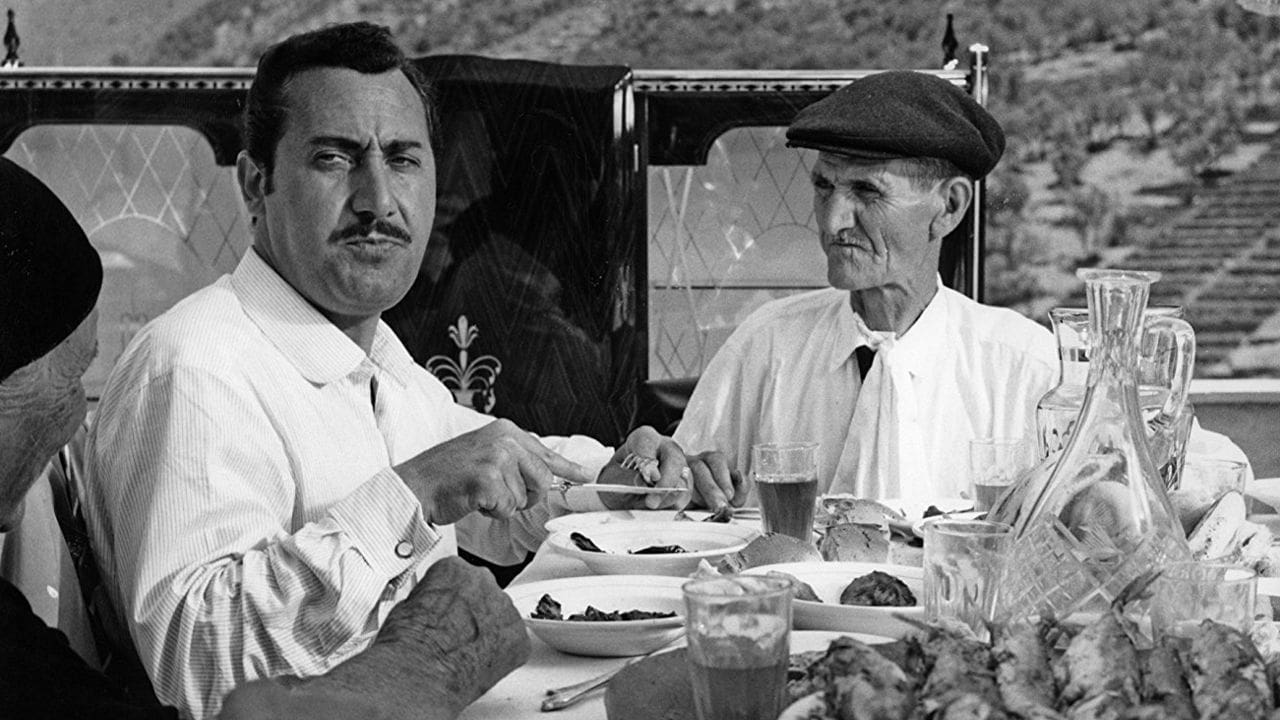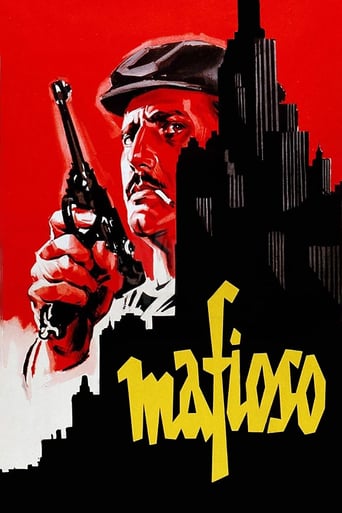



Wow! Such a good movie.
Surprisingly incoherent and boring
It's hard to see any effort in the film. There's no comedy to speak of, no real drama and, worst of all.
View MoreLet me be very fair here, this is not the best movie in my opinion. But, this movie is fun, it has purpose and is very enjoyable to watch.
View MoreExcellent, underseen comedy/drama by Alberto Lattuada, best known for co-directing Variety Lights with Federico Fellini. In a Fellini biography I once read Lattuada was quoted as bitterly claiming that he invented Fellini, that Fellini had basically participated in the making of Variety Lights but it was Lattuada's film. Lattuada was just trying to be nice, to help the kid start off his career, and Fellini pretty much stole the style for his subsequent films. Judging by this film, made 12 years afterward, Lattuada had apparently moved on, because this isn't much like Fellini's style (though one could imagine Fellini making a similarly plotted film). However, it is an excellently directed film, one that makes me wonder how many other gems might be hiding in Lattuada's filmography. It stars Alberto Sordi, whom you'll recognize from two early Fellini films, The White Sheik and I Vitelloni. He plays a Sicilian who is now a successful man in Milan. He's married with two young daughters, but he hasn't been home to visit the family since he left. This is the story of his twelve day vacation visiting home, bringing along his family. To his wife (Norma Bengell, a Brazilian actress), Sicily seems an extremely backward country. The whole culture is strange and very different from mainland Italy, and there seem to be hints of criminal activity between every line. She's not wrong. Sordi was never exactly in the mafia when he lived in Sicily, but he was more than a little connected, and now some of the high ranking criminals are thinking his status as unknown outsider might be useful to them. The film is very funny, but it also goes to some dark places. One thing's for sure: I don't think he or his family will want to visit the family again anytime soon.
View MoreA factory efficiency expert decides to take his family on a nostalgic vacation to the small town in Sicily where he grew up. Big mistake. He quickly becomes embroiled with the local Mafia, who see him as the perfect candidate to take care of a little job for them in America. Long before THE GODFATHER or THE SOPRANOS, Alberto Lattuada made this tragicomedy about Mob life. Between this and SEDUCED AND ABANDONED, one gets the impression that Sicily in the early sixties was an outer circle in Dante's Inferno. Shot in glorious black and white on location. A forgotten gem, recently restored. Note to foodies: there are several terrific meals in this movie. You may not live long in the Mafia, but you'll dine well.
View MoreMafioso was made in 1962 and reflects a "pre-color" film aesthetic that includes both vivid dialog and precise black-and-white renditions of light and shade. One result of the superb craftsmanship in Mafioso is to pull the viewer, consciously or unconsciously, into the lives of characters. The strongest pull is from the Alberto Sordi character, Antonio Badalamenti, a Sicilian who migrated to Northern Italy as a young man and made good, with a job as factory foreman and a blond wife and daughters. On a vacation, he takes the family, for the first time, to Sicily, giving both Northern and Southern relatives a chance to decide what to make of one another.Mafioso's director, Alberto Lattuada, handles all of this is with a naturalness that immediately makes us accept and believe in his characters. It's a wonderful achievement. That it was possible with 1962 black-and-white technology is cause not only to appreciate Lattuada and his team's accomplishment but to reconsider assumptions on how characters in movies can be brought to life. Approach to film-making may, in the end, matter more than technology. For example, the material poverty of the Sicilian settings is calmly obvious in Mafioso in a way that is not evident in the far grander movies of the well-known Italian-American auteurs.Once in Sicily, things start to happen. Both families prove adaptable and find ways to get along but, for Antonio, there are unexpected implications. Seems he owes the local don (played by Ugo Attanasio in another wonderful, low-keyed performance) a favor. Antonio pretends to his wife and daughters that he's on a hunting trip but is packed into a shipping crate so that he can be sent to America, kill a rival gangster, and be shipped back to Sicily. Everything works. Antonio's upset about killing the stranger but is quite willing to keep the secret (and his acceptance by both Southern and Northern cultures) for the rest of his well-ordered life.
View MoreAlbert Sordi is virtually unknown here in the United States. He's been called the Italian Peter Sellars but I think that should be reversed, Sellers was the British Sordi. Just one look at his performance in this film should cement that fact that Sordi was by far a better dramatic actor then anything I've seen Sellars do.I had the pleasure of seeing this film twice and it really improves the second time. The loud behavior is a little off-putting the first time but the second viewing revealed all the incredible subtleties in the film and the performances.The direction is extremely good. Director Lattuada is unknown here despite his extensive resume. I could see a definite influence on Sergio Leone in the camera placement and attention to detail. And the music is exceptional as well. The switch to serious drama is what makes this a great film. A lesser production would have made the mafia into clowns.If the film comes into town make a point to see it. It's better then most of the stuff being made today.
View More